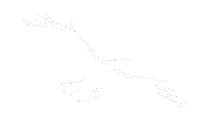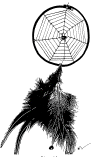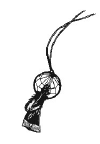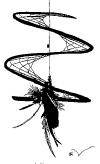Ways of the Ojibwe
Father Sun/Mother Earth
What are some Ojibwe beliefs about the
physical world?
 The
Ojibwe People have always honored the physical world: the sun, the earth,
the moon, and the stars, as well as other natural wonders, such as lightning
and thunder. The most important of these are the sun and the earth.
The
Ojibwe People have always honored the physical world: the sun, the earth,
the moon, and the stars, as well as other natural wonders, such as lightning
and thunder. The most important of these are the sun and the earth.
The sun, which is often referred to as "Father Sun," is
typically associated with the male and fatherhood. Similarly, the female and
motherhood are associated with "Mother Earth." Ojibwe traditional beliefs
teach us that just as men and women are very different, so are the sun and
the earth. To put it very simply, the sun puts life into all things and the
earth sustains all life. As always in the Ojibwe tradition, all natural
beings are intertwined, so whether you are talking about the man and the
woman, or the sun and the earth, it is important to remember that one cannot
give or sustain life without the other.
The Ojibwe believe that the natural elements and the human
experience are also interconnected. Take for example the daily occurrence of
dawn and dusk. Each day, with the rising of the sun, a human being is given
a new day just as the flowers open and the animals stir with life. In the
same way, when the sun sets, all life rests: animals, plants and humans go
back to sleep. The Ojibwe People thank the Great Creator every day for
giving them life.
Another connection between human experience and nature is
the concept of ownership. Ojibwe tradition says that no man can own his
mother, and no man can own the earth. But, just as a mother grows old and
must be taken care of by her children, so must Mother Earth be taken care of
by her inhabitants, or children.
As you can see, Ojibwe beliefs are rich with explanations
about the secrets of life. These are just explanations � the Ojibwe People
do not believe that they have solved the mystery of our universe or the
Great Creator, for it is that unsolved mystery which is the beauty of life.
Importance of Elders
Have you ever felt rude asking somebody their age? In
American society, that�s not unusual. These days, many people prefer to hide
their age because, for the most part, it�s considered unattractive to be
old. But for members of the Mille Lacs Band of Ojibwe, age is something to
be proud of.
Mille Lacs Band members are considered Elders when they turn 55. That�s
because they have accumulated life experiences that help them � and others �
understand the world better. In fact, there is an Ojibwe legend that says
"watch the long-livers � those who have lived longer than you know more than
you."
One of the greatest things Band Elders offer are their teachings. They teach
Ojibwe language and culture to Band children and adults � often by telling
stories. The Elders� stories about the old days are part of the Ojibwe
Peoples� rich oral tradition. These stories, passed on from generation to
generation, help keep the Ojibwe culture alive.
Because Band Elders are so respected, important issues that affect the Band
are discussed with the Elders, and their advice is considered when making
decisions. The Band has also developed many programs to make life easier for
its aging members. These programs include housing, home health aides, and an
Elderly Nutrition Program that provides Elders with a nutritious lunch
everyday.
In many cultures, young people � especially those who have been to college �
believe that they have most of the answers to life�s questions. In the
Ojibwe culture, that�s not the case. Young Band members draw on the wisdom
of their Elders to find answers to their questions. These answers are why
Elders are so important to not only the Ojibwe People, but to all American
Indians.
Seven Generations
For Ojibwe People, making a decision with an eye on seven generations ahead
means more than just making a long-term decision. It means taking into
consideration the lives of seven generations of children.
The idea is: whatever you do today will impact things far into the future.
If you pollute the air today, then generations from now, the air will be
poisonous to breathe. Chopping down a tree today will mean depleted
resources years from now, and so on.
Most people in the United States � and across the world � understand this
phenomenon, but usually forget it when it comes to making business
decisions. Often our "long-term" decisions only take into account what could
happen in the next five or ten or 20 years. People very rarely think seven
generations ahead.
According to Ojibwe tradition, thinking seven generations ahead means that
your decisions are not selfish and rash. It means that your decisions take
into consideration the circle of life. Although it is not always possible to
plan so far in advance, it�s important to hold seven generations as an
ideal.
White Eagle Soaring: Dream Dancer of the 7th Fire







 Get
a course to promote your business online, explode your sales
Get
a course to promote your business online, explode your sales Get
software to promote your business online in less time
Get
software to promote your business online in less time Get
software to streamline your business and run it hands free.
Get
software to streamline your business and run it hands free. The
Ojibwe People have always honored the physical world: the sun, the earth,
the moon, and the stars, as well as other natural wonders, such as lightning
and thunder. The most important of these are the sun and the earth.
The
Ojibwe People have always honored the physical world: the sun, the earth,
the moon, and the stars, as well as other natural wonders, such as lightning
and thunder. The most important of these are the sun and the earth.
